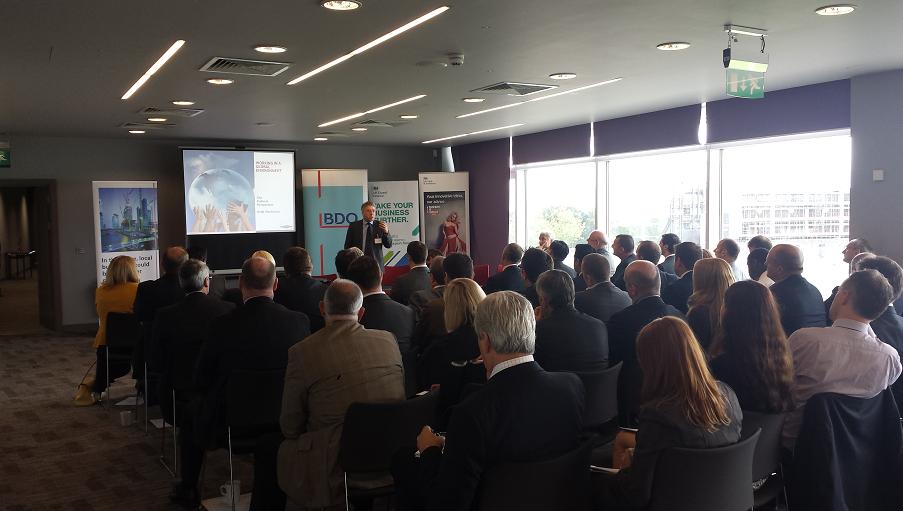Business and political leaders have often talked about the need for the UK to improve its business performance on a global level, and the economic advantages for doing so. The government has highlighted the imperative to double exports by 2020; yet exporting is only part of the journey, and more support should be given to SMEs, and especially MSBs (mid-sized businesses) looking to make the transition from exporter to international business with operations overseas.
As part of their focus on the Central South Mid Market, accountancy and business advisers BDO LLP joined forces with HSBC and UKTI at a recent event, alongside guest business speakers Gail Thomas from TW Metals who has seen her business grow from £29m to £135m in the last eight years, and CEO of Corrotherm International, Jan Ward who has offices in China, Australia, Dubai, Abu Dhabi, Saudi Arabia, South Africa, UK, India and Korea.
The event provided attendees from 30 businesses with an opportunity to learn about how to export internationally, and what businesses should be looking out for.
Giving an overview of current market opportunities, Peter McIntyre, Head of UK Trade for HSBC, touched on why UK companies need to export and grow overseas, and how a ‘made in UK’ label can bring a lot of credibility: “The British brand really opens doors for businesses.”
Keith Warburton of Global Business Culture considered the impact of cultural differences on international business and urged companies to “put relationships before business – the majority of the world will only do business with people they have developed good relationships with first.”
Speaking from experience, Corrotherm’s Jan Ward explains: “Culturally, on the ground face-to-face contact is essential to understand what customers really need, and building relationships is very much a key part of business.”
All the speakers agreed it was crucial to choose the right partners on the ground and create a management team that comprised both expat and local staff.
Kim Hayward, International Liaison Partner at BDO LLP in Southampton explains: “There is a burgeoning middle class particularly in China and India that offers huge potential, but the size of these countries means there are different markets within a market that need different approaches.”
HSBC highlighted other challenges, such as waiting 180 days for payment in some countries, compared to the usual 60 or 90 days here. David Wilkinson, FD at Chinatool agreed, “You have to accept the terms on which they do business but HSBC and other banks can help ease this process by freeing up cash and having the right support from organisations such as UK Export Finance can help mitigate risk.”
BDO LLP will have the opportunity to highlight the journey to mid-market businesses at the International Festival of Business 2014 (IFB) which is taking place throughout June and July in the host city of Liverpool.
Partnered with the UKTI and loudly endorsed by David Cameron and Lord Livingstone, the IFB is a 50-day festival with more than 150 events and activities to bring together business delegates, advisers and trade bodies from across the world to drive international expansion.
Hayward concludes, “The IFB is a fantastic opportunity for British businesses that are keen to seize the opportunities presented by global expansion and contribute not only their own growth but that of the wider economy.”




















